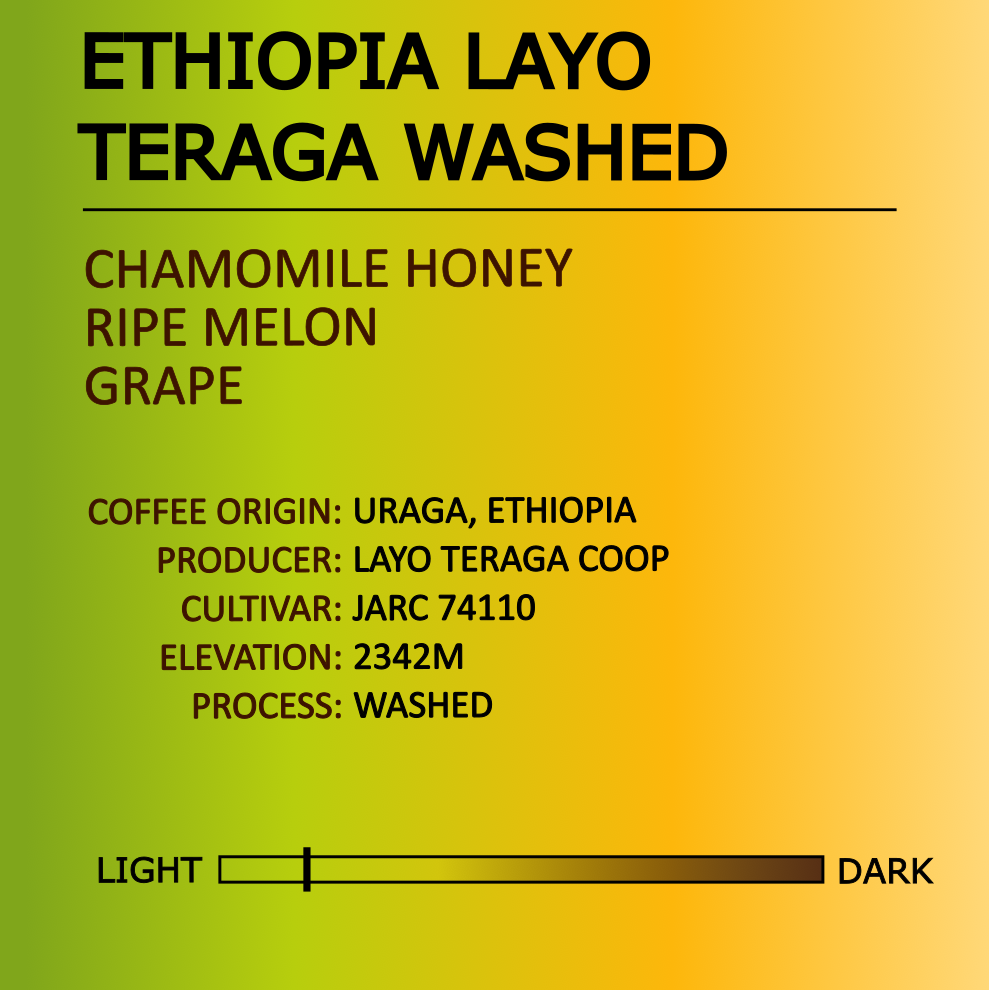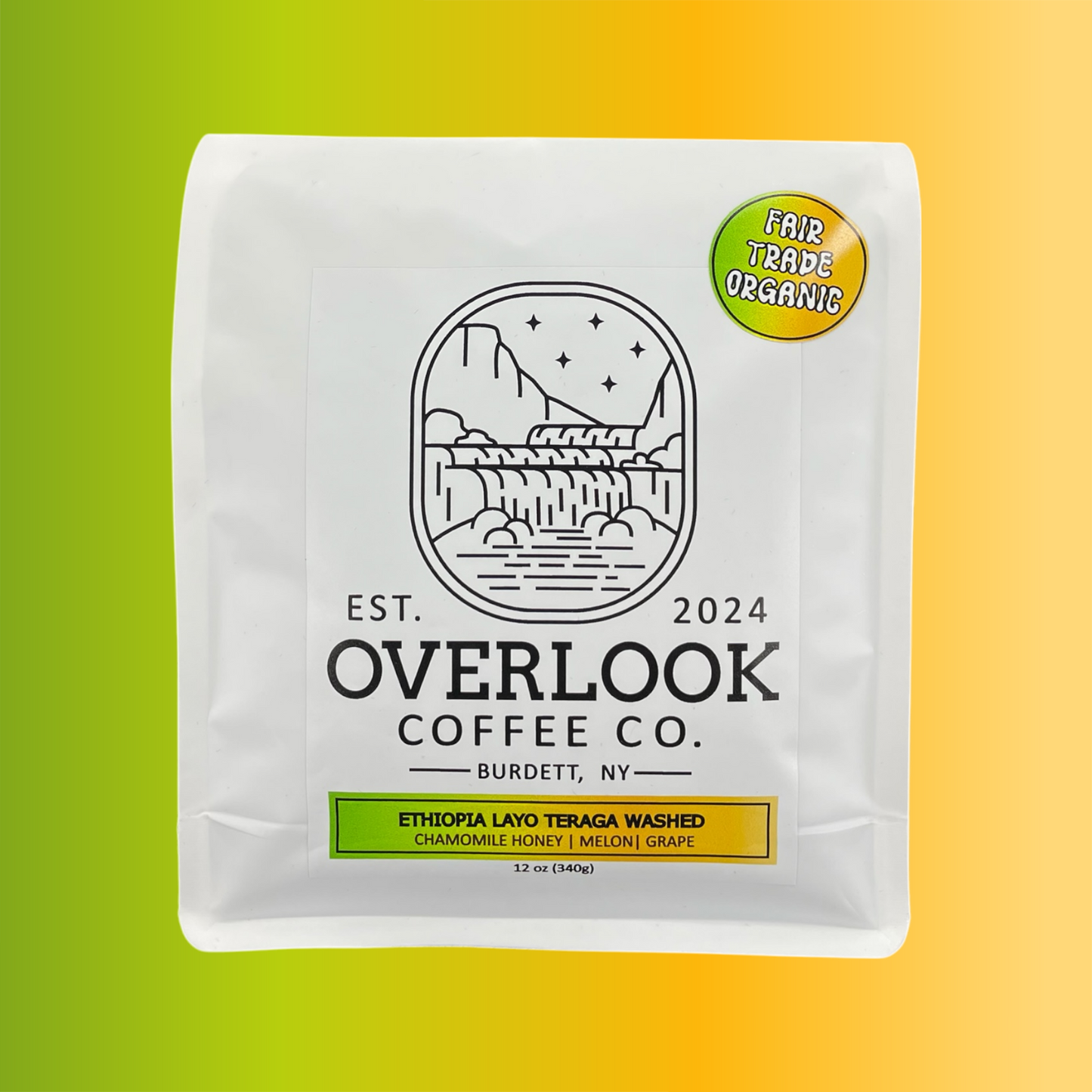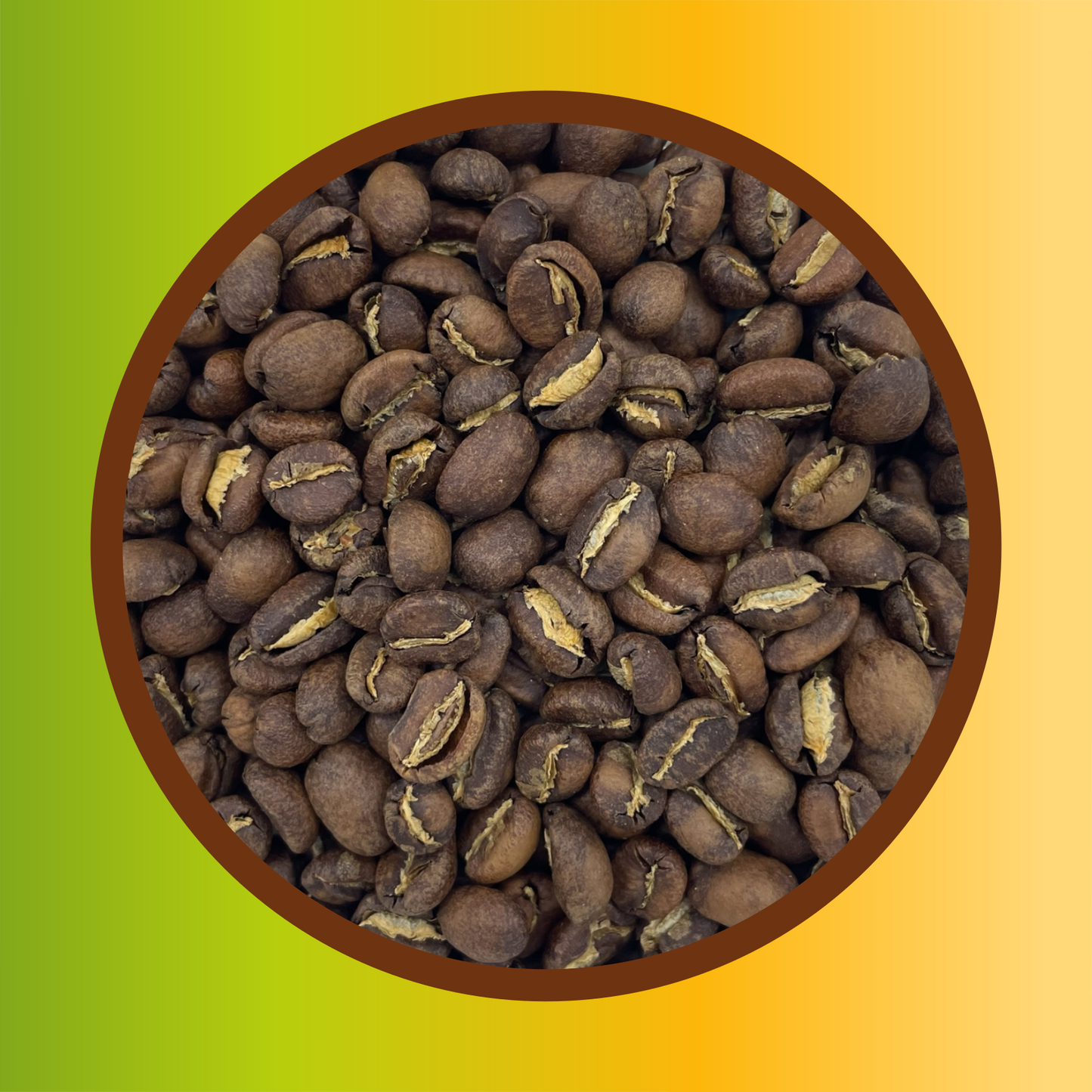Ethiopia Layo Teraga Washed
Ethiopia Layo Teraga Washed
Couldn't load pickup availability
Share



-
Description:
This standout coffee comes from the Uraga Woreda in Ethiopia, cultivated by the Layo Teraga Coffee Producers Cooperative and processed at Site 2 of their washing station. We get notes of chamomile honey and ripe melon, rounded out by the juicy sweetness of grape. Grown at a staggering altitude of 2,342 meters, this lot is primarily made up of the JARC 74110 varietal, developed by the Jimma Agricultural Research Center, which contributes to its bright, floral character. This washed coffee excels in pour-over brews, offering delicate clarity and a clean, tea-like finish.
-
Product Info:
Variety: JARC 74110
JARC 74110 – “Badessa” is a high-performing coffee variety developed by the Jimma Agricultural Research Center (JARC) in Ethiopia. Selected from a wild coffee population in the 1970s, 74110 was bred for its resistance to coffee berry disease (CBD), strong adaptability to various growing conditions, and high yield potential. Known locally as Badessa, this variety thrives particularly well in mid- to high-altitude regions and has become a favorite among farmers for its reliability and resilience. Importantly, 74110 also maintains outstanding cup quality, featuring the floral and citrus notes that make Ethiopian coffees so prized around the world. Today, JARC 74110 plays a key role in Ethiopia’s coffee sector, helping farmers boost productivity while meeting both local and international demand for premium, sustainably grown Arabica coffee.Process: Washed
The washed process, also known as the wet process, is a method used to remove the outer pulp and mucilage from coffee cherries before drying the beans. In this process, ripe cherries are first pulped to remove the outer skin, leaving behind the beans covered in mucilage. The beans are then fermented in water for a period of time, usually between 12 to 72 hours, depending on factors like altitude and temperature. During fermentation, enzymes break down the mucilage layer surrounding the beans. After fermentation, the beans are thoroughly washed to remove any remaining mucilage, leaving clean coffee beans ready for drying.Elevation: 2342M
Elevation plays a crucial role in determining the quality and flavor profile of coffee beans. Generally, higher elevations are associated with better quality coffee. As coffee plants grow at higher altitudes, they face cooler temperatures, reduced oxygen levels, and increased exposure to sunlight. These conditions cause the coffee cherries to mature more slowly, allowing them to develop more complex flavors and a higher concentration of sugars.Roast: Light
LightProfile: Chamomile Honey,
Ripe Melon,
GrapeA coffee profile, also known as a flavor profile or tasting notes, refers to the unique combination of flavors, aromas, and characteristics present in a particular coffee bean or blend. It encompasses a range of sensory attributes such as acidity, body, sweetness, bitterness, aroma, and aftertaste. Coffee profiles can vary widely depending on factors like the bean's origin, variety, processing method, roast level, and brewing technique.
-

Founded in 1976, the Layo Teraga cooperative provides market access for its smallholder members that would otherwise
not have existed in Guji, where prices for coffee have historically been lower than neighboring Gedeo or Sidama zones
because of this lack of market access. Located in northern Uraga in the Guji zone, the 1841 smallholder members of the
cooperative grow coffee in gardens around their homes in semi-forested environments at staggeringly high elevations of
2342 MASL. -





